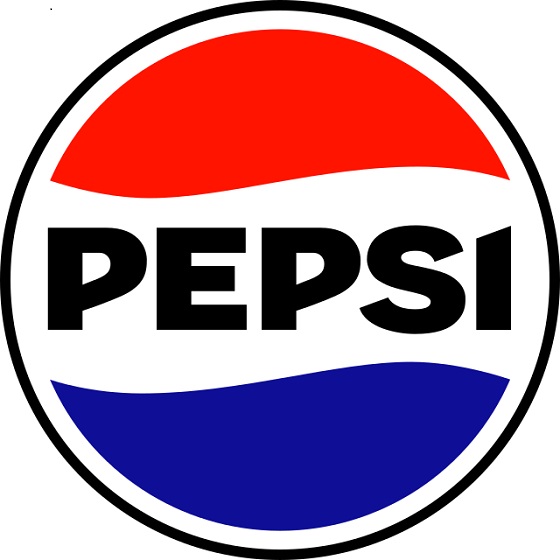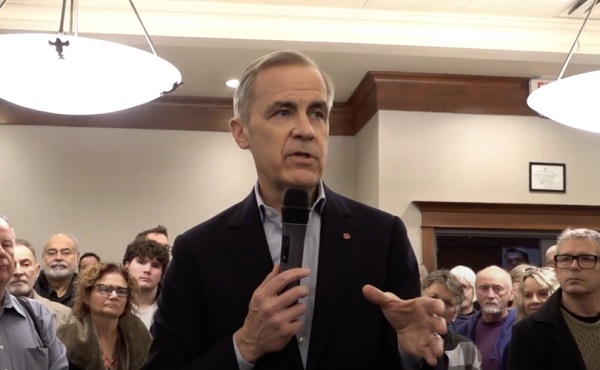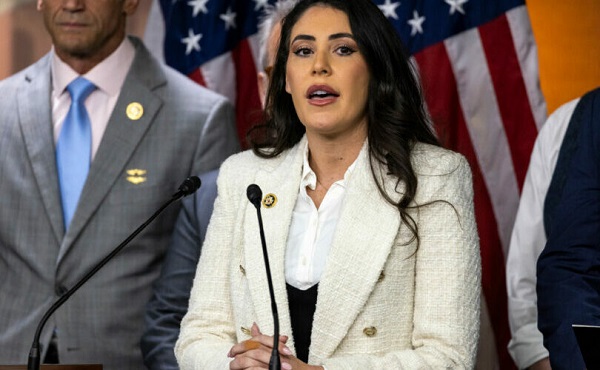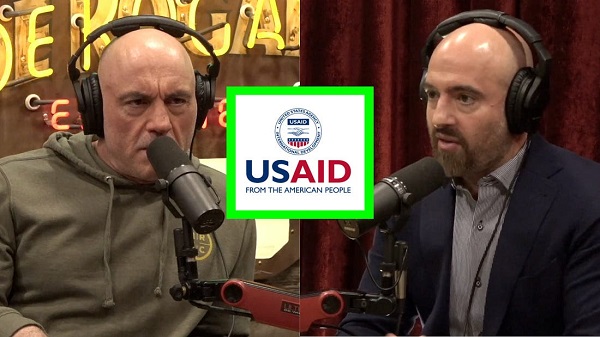Business
FDA bans commonly used food dye

FDA Finally Bans Cancer-Linked Red No. 3 Food Dye
The Food and Drug Administration (FDA) announced on Wednesday that it is banning the use of Red No. 3, a synthetic dye responsible for the vibrant cherry red color in foods and beverages, citing its association with cancer in animal studies:
The dye is still used in thousands of foods, including candy, cereals, cherries in fruit cocktails and strawberry-flavored milkshakes, according to the Center for Science in the Public Interest, a food safety advocacy group that petitioned the agency in 2022 to end its use.
Food manufacturers will have until Jan. 15, 2027 to reformulate their products. Companies that make ingested drugs, such as dietary supplements, will get an additional year.
This ban was LONG overdue. Unfortunately, the other synthetic food dyes that have also been linked to serious deleterious health effects still remain on the market. A few months ago, I summarized the harm linked to synthetic food dyes — outdated FDA standards expose Americans to toxic food dyes linked to cancer, neurobehavioral issues, and other health risks, demanding urgent regulatory action:
Synthetic Food Dyes: A Half-Century of Harm |
||||||
|
||||||
|
by Nicolas Hulscher, MPH
|
||||||
|
Batada et al found that nearly half (43.2%) of grocery store products contained artificial food colorings (AFCs), with Red 40 (29.8%), Blue 1 (24.2%), Yellow 5 (20.5%), and Yellow 6 (19.5%) being the most common. Candies (96.3%), fruit-flavored snacks (94%), and drink mixes/powders (89.7%) had the highest prevalence of AFCs, while produce contained none.
Oliveira et al summarized the deleterious health effects linked to synthetic food colorings in children: neurobehavioral disorders, allergic reactions, carcinogenic and mutagenic potential, gastrointestinal and respiratory issues, toxicity, developmental and growth delays, and behavioral changes.
Sultana et al illustrated the specific health hazards associated with particular synthetic food dyes:
Miller et al conducted a systematic review of the potential neurobehavioral impacts (activity and attention) of food dye consumption. They included 27 clinical trials of children exposed to synthetic food dyes and found that 16 of 25 challenge studies (64%) demonstrated evidence of a positive association, with 13 studies (52%) reporting statistically significant findings. The authors concluded, “Current evidence from studies in humans, largely from controlled exposure studies in children, supports a relationship between food dye exposure and adverse behavioral outcomes in children, both with and without pre-existing behavioral disorders.” They also noted that:
“Animal toxicology studies were used by FDA as the basis for regulatory risk assessments of food dyes [25]. All current dye registrations were made between 1969 and 1986 based on studies performed 35 to 50 years ago. These studies were not designed to assess neurobehavioral endpoints. Dye registration was accompanied by derivation of an “acceptable daily intake” (ADI) based on these studies. FDA ADIs have not been updated since original dye registration, although there have been several reviews of specific effects since then, the latest in 2011.”
Synthetic food dyes, widely prevalent in U.S. products and lacking nutritional value, rely on outdated FDA approvals despite evidence of widespread toxicity, carcinogenicity, and adverse neurobehavioral effects, strongly warranting urgent regulatory action to protect public health.
While the FDA has finally made a decision that will benefit public health, they are still allowing the dangerous COVID-19 genetic injections to be administered to all individuals aged 6 months and older despite far exceeding criteria for a Class I recall. The immediate removal of unsafe and ineffective gene therapy injections should be the first priority before anything other product bans.
Nicolas Hulscher, MPH
Epidemiologist and Foundation Administrator, McCullough Foundation
Please consider following the McCullough Foundation and Nicolas Hulscher on X (formerly Twitter) for further content.
Business
DOJ drops Biden-era discrimination lawsuit against Elon Musk’s SpaceX

 MxM News
MxM News
Quick Hit:
The Justice Department has withdrawn a discrimination lawsuit against Elon Musk’s SpaceX that was filed during the Biden administration. The lawsuit accused SpaceX of discriminatory hiring practices against asylum seekers and refugees. The move follows ongoing cost-cutting measures led by Musk as the head of the Department of Government Efficiency under the 47th President Donald Trump’s administration.
Key Details:
-
The DOJ filed an unopposed motion in Texas federal court to lift a stay on the case, signaling its intent to formally dismiss the lawsuit.
-
The lawsuit, filed in 2023, alleged SpaceX required job applicants to be U.S. citizens or permanent residents, a restriction prosecutors argued was unlawful for many positions.
-
Elon Musk criticized the lawsuit as politically motivated, asserting that SpaceX was advised hiring non-permanent residents would violate international arms trafficking laws.
Diving Deeper:
The Justice Department, led by Attorney General Pam Bondi, has moved to drop the discrimination lawsuit against SpaceX, marking another reversal of Biden-era legal actions. The case, initiated in 2023, accused SpaceX of discriminating against asylum seekers and refugees by requiring job applicants to be U.S. citizens or permanent residents. Prosecutors claimed the hiring policy unlawfully discouraged qualified candidates from applying.
The DOJ’s decision to withdraw the case follows a judge’s earlier skepticism about the department’s authority to pursue the claims. No official reason for the withdrawal was provided, and neither Musk, SpaceX, nor the DOJ have issued public statements on the development.
Elon Musk was outspoken in his criticism of the lawsuit, labeling it as a politically motivated attack. Musk argued that SpaceX was repeatedly informed that hiring non-permanent residents would violate international arms trafficking laws, exposing the company to potential criminal penalties. He accused the Biden-era DOJ of weaponizing the case for political purposes.
The decision to drop the lawsuit coincides with Musk’s growing influence within the Trump administration, where he leads the Department of Government Efficiency (DOGE). Under his leadership, DOGE has implemented aggressive cost-cutting measures across federal agencies, including agencies that previously investigated SpaceX. The Federal Aviation Administration (FAA), which proposed fining SpaceX $633,000 for license violations in 2023, is currently under review by DOGE officials embedded within the agency.
Meanwhile, SpaceX’s regulatory challenges appear to be easing. A Texas-based environmental group recently dropped a separate lawsuit accusing the company of water pollution at its launch site near Brownsville. The withdrawal of the DOJ lawsuit signals a significant victory for Musk as he continues to navigate regulatory scrutiny while advancing his business ventures under the Trump administration.
Business
PepsiCo joins growing list of companies tweaking DEI policies

 MxM News
MxM News
Quick Hit:
PepsiCo is the latest major U.S. company to adjust its diversity, equity, and inclusion (DEI) policies as 47th President Donald Trump continues his campaign to end DEI practices across the federal government and private sector. The company is shifting away from workforce representation goals and repurposing its DEI leadership, signaling a broader trend among American corporations.
Key Details:
-
PepsiCo will end DEI workforce representation goals and transition its chief DEI officer to focus on associate engagement and leadership development.
-
The company is introducing a new “Inclusion for Growth” strategy as its five-year DEI plan concludes.
-
PepsiCo joins other corporations, including Target and Alphabet-owned Google, in reconsidering DEI policies following Trump’s call to end “illegal DEI discrimination and preferences.”
Diving Deeper:
PepsiCo has announced significant changes to its DEI initiatives, aligning with a growing movement among U.S. companies to revisit diversity policies amid political pressure. According to an internal memo, the snacks and beverages giant will no longer pursue DEI workforce representation goals. Instead, its chief DEI officer will transition to a broader role that focuses on associate engagement and leadership development. This shift is part of PepsiCo’s new “Inclusion for Growth” strategy, set to replace its expiring five-year DEI plan.
The company’s decision to reevaluate its DEI policies comes as President Donald Trump continues his push against DEI practices, urging private companies to eliminate what he calls “illegal DEI discrimination and preferences.” Trump has also directed federal agencies to terminate DEI programs and has warned that academic institutions could face federal funding cuts if they continue with such policies.
PepsiCo is not alone in its reassessment. Other major corporations, including Target and Google, have also modified or are considering changes to their DEI programs. This trend reflects a broader corporate response to the evolving political landscape surrounding DEI initiatives.
Additionally, PepsiCo is expanding its supplier base by broadening opportunities for all small businesses to participate, regardless of demographic categories. The company will also discontinue participation in single demographic category surveys, further signaling its shift in approach to DEI.
As companies like PepsiCo navigate these changes, the debate over the future of DEI in corporate America continues. With Trump leading a campaign against these practices, more companies may follow suit in reevaluating their DEI strategies.
-

 Bruce Dowbiggin2 days ago
Bruce Dowbiggin2 days agoWith Carney On Horizon This Is No Time For Poilievre To Soften His Message
-

 COVID-192 days ago
COVID-192 days agoRed Deer Freedom Convoy protestor Pat King given 3 months of house arrest
-

 Media2 days ago
Media2 days agoMatt Walsh: CBS pushes dangerous free speech narrative, suggests it led to the Holocaust
-

 illegal immigration2 days ago
illegal immigration2 days agoTrump signs executive order cutting off taxpayer-funded benefits for illegal aliens
-

 Carbon Tax2 days ago
Carbon Tax2 days agoMark Carney has history of supporting CBDCs, endorsed Freedom Convoy crackdown
-

 Censorship Industrial Complex1 day ago
Censorship Industrial Complex1 day agoBipartisan US Coalition Finally Tells Europe, and the FBI, to Shove It
-

 Business19 hours ago
Business19 hours agoArgentina’s Javier Milei gives Elon Musk chainsaw
-

 International2 days ago
International2 days agoSenate votes to confirm Kash Patel as Trump’s FBI director












